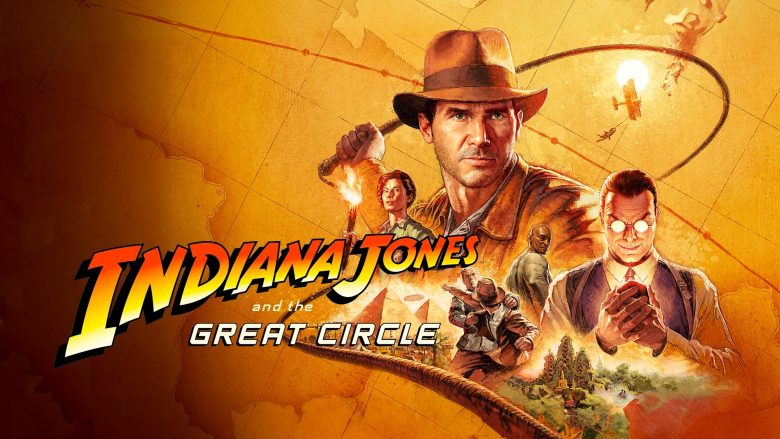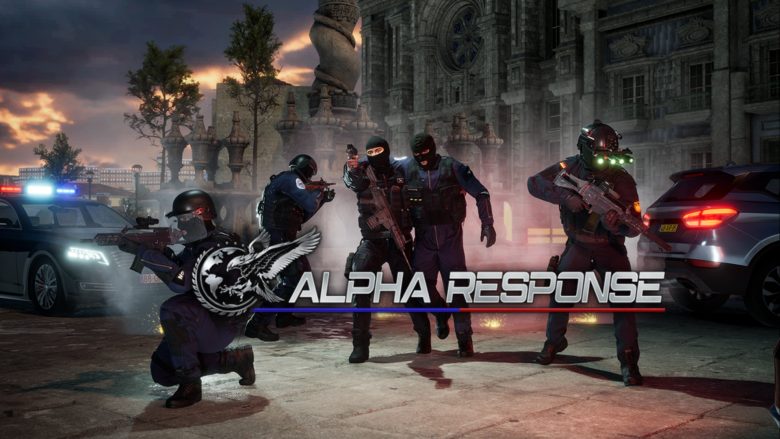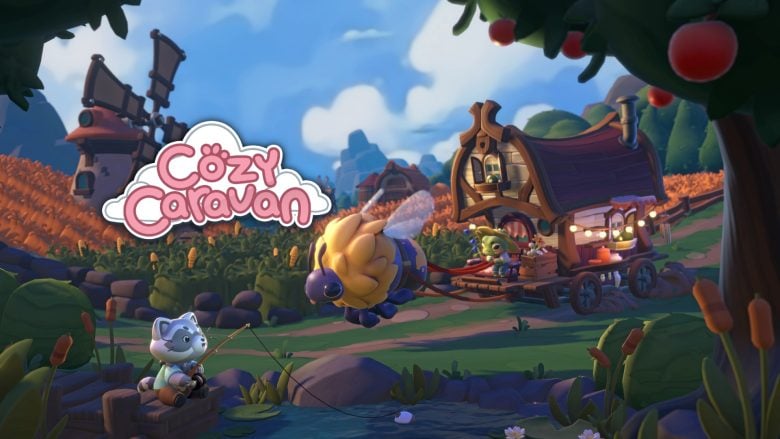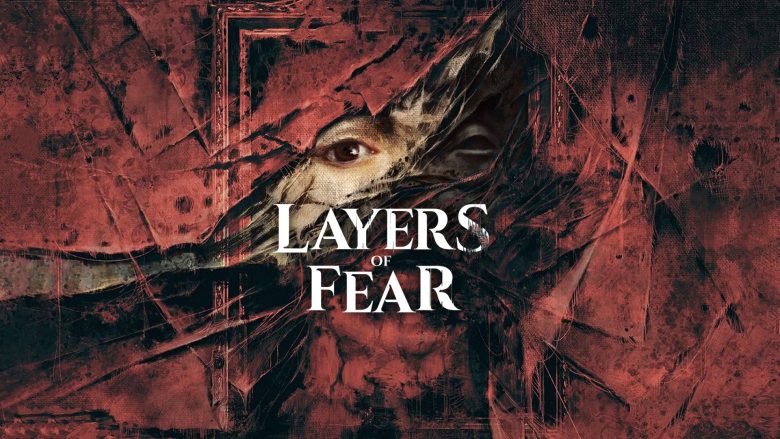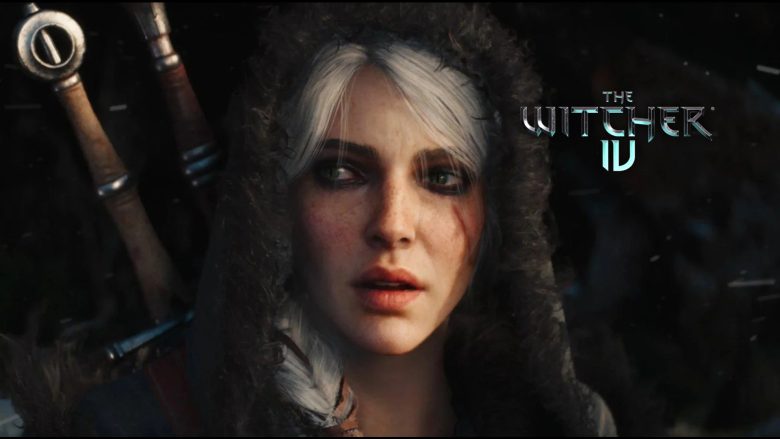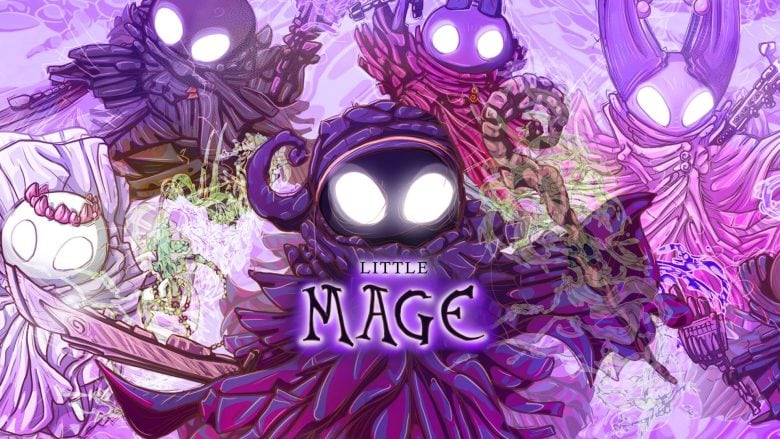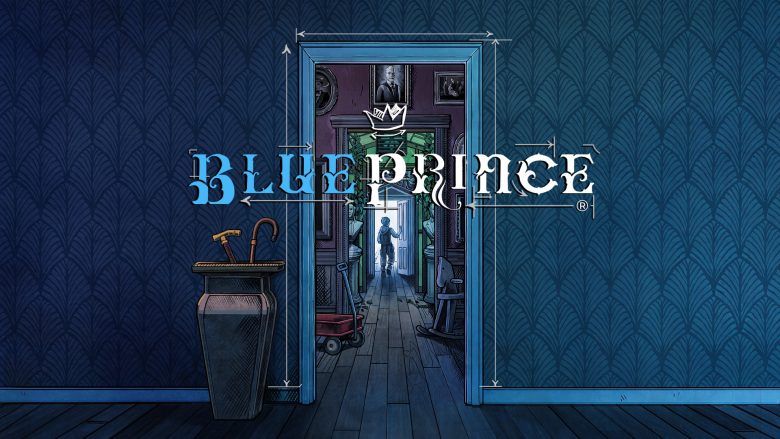A melancholic four-pawed adventure in the shoes of a tender adopted kitten that explores the themes of loneliness and abandonment, delving into the true meaning of “Home.”

It’s a rainy day, it’s cold, you’re stuck indoors, don’t know what to do, and you’re a cat lover? Well, if all these elements resonate with you and define your day, we’ve got just the remedy for your current mood!
Cat enthusiasts, feline lovers, and friends of the four-legged world, allow us to introduce you to Copycat, a captivating and melancholic “four-pawed” video game developed by Spoonful of Wonder, a tiny game development studio primarily based in Sydney, Australia.
Copycat is a wholesome, introspective story-driven adventure that will have you stepping into the shoes of a little adopted kitten and delving into its intricate tale, where it finds itself replaced in what we might call the “life of its dreams” by a mere cat doppelgänger.
Are you ready to learn more about this project? Follow us, and we’ll provide you with all the details.
Spoonful of Wonder: When Creativity, Art, and Passion know no boundaries
Before delving into the details of Copycat and giving you a closer look at the game, let us share the story of Spoonful of Wonder, a tiny game development studio founded by Samantha Cable and Kostia Liakhov. It’s a beautiful tale that knows no limits or boundaries, made possibile solely through the dedication of the developers and their passionate commitment to what they do and love.
It’s a story born from two creatives in the name of creativity. But let’s not limit the description to merely calling them creatives. They are creatives, they love creativity, and are full-time creatives, but they are much more than just a creative team. Samantha and Kostia are innovators, articulators, and mischief-makers. Think of anything that might come to mind to describe their work. Yes, Sam and Kostia embody all that, and perhaps even what you haven’t thought of yet. Theirs is a wonderful story of the meeting of diverse cultures, showcasing how art, creativity, and the world of gaming itself can overcome any barrier—whether physical and geographical or ideological.


Samantha, Game Director, and Head of Narrative, is a young and talented individual from New Zealand with a unique creative flair for storytelling. She is a vibrant writer specializing in stories for video games, animation, and comic books. Her extensive portfolio has earned her the title of “Young Creative of the Year” at ADC Europe. Sam holds a Masters in Screenwriting from the Australian Film Television and Radio School, where she has also returned as a guest lecturer. She’s a 2023 award jury member for the gaming category of the Art Directors Club in New York.
Kostia, also very young, is the Game Director and Head of Art. He is a brilliant individual who loves creativity and boasts over 10 years of experience in commercial creativity. During this time, he honed his skills in directing, innovation, and design, winning over 100 international art direction awards, including Cannes Lions, D&AD, and New York Festivals. In addition to being fluent in English, German, Ukrainian, and Russian, Kostia is also well-versed in technical language, demonstrating extensive proficiency with Unity 3D, Blender, After Effects, FMOD, Reallusion iClone, and Photoshop.
Founded in 2022, Spoonful of Wonder emerged with the mission to become a boutique Australian gaming collective with a vision for video game development that ignites imagination, sparks nostalgia, and speaks to the soul. Naturally, they also aspire to showcase their love for cats, connecting with fellow feline enthusiasts. And, of course, to make it clear to all of us that, sooner or later, cats will conquer the entire universe. You know that’s bound to happen, don’t you?


Jokes aside, Copycat will be Spoonful of Wonder’s debut video game—a project the team wholeheartedly believes in and is investing significantly in. It focuses on a deep and immersive narrative component, which, to be honest, intrigues us a lot and is something that will define the team’s identity and will showcase the studio’s conveyed idea of art and creativity, or at least that’s our expectation. But hold on, we’ll delve into the details shortly.
A couple of information and tidbits you need to know about Copycat
If you’ve been paying close attention, you should already know what Copycat is. But let’s briefly recap. It’s an evocative and captivating third-person adventure (even though we play as a cat), centered around narration, where a sweet house kitten is deceptively replaced by a shelter copycat. And so begins our little odyssey and… our protagonist’s nightmare.
The video game was developed by the indie studio Spoonful of Wonder and published by Neverland Entertainment, Nuuvem, and the developers themselves, Spoonful Of Wonder, as indicated on the Steam page. The team at Spoonful of Wonder has also disclosed that the game will be available for Nintendo Switch, PC, Mac, PlayStation 4, PlayStation 5, and Xbox Series X/S, and we presume (as it hasn’t been confirmed yet) also for Xbox One.
Copycat was developed with the support of a distinguished partner, Screen Australia, a Federal Government agency tasked with championing Australian screen development, production. In a February 2023 announcement, Screen Australia unveiled that 11 games, Copycat included, will collectively receive over $1.5 million in funding through the Games: Expansion Pack fund.
This announcement follows the launch of the Federal Government’s new National Cultural Policy, Revive, which includes a commitment to introduce a Digital Games Tax Offset. Additionally, it allocates an extra $12 million over four years, starting from 2023-2024, to support digital game developers and small to medium independent game studios through Screen Australia.
Now that we’ve laid the necessary groundwork, let’s delve into the core of Copycat and explore the game in greater detail.
Perhaps I’m no longer welcome here…
Being a cat today is more of a privilege than ever. Having a home, humans who obey all your commands, pay your rent, think about your food, and ensure you have a warm spot to sleep. However, this is not the case for our protagonist, Dawn.

Life is not so simple for all cats, especially if you are a newly adopted shelter cat, distrustful of everything and everyone, who must find a new home and someone to trust.
Copycat’s narrative stands as a key pillar around which Spoonful of Wonder’s project is structured, with a storyline of approximately three hours in a three-act story, featuring a delightful and poignant storyline, plot twists, deep introspection, and numerous moral dilemmas that will question every choice you make or make you regret it.
Our adventure begins in what appears to be, by all means, a small shelter for cats. Here, we will presumably have the chance to choose Dawn’s appearance from the available options by glancing at various cages and selecting the cat our family will adopt. This moment will likely be the only one throughout the game where we won’t play as Dawn. Once you have chosen and adopted the cat, your four-legged journey shall begin!

Much like many other cats, Dawn is very wary of others, aloof, and above all, detests adoptions. She would much rather be in the wild than face a new adoption and get to know a new family. And she won’t hesitate to run away as soon as she has the chance.
Or at least until she meets Olive, a lonely elderly lady with a tender and kind heart, mourning the disappearance of her beloved furry companion. A unique bond blossoms between them, an unbreakable friendship where two shattered hearts find a way to heal— together, in harmony. Similar to Dawn, Olive has a troubled past and, unlike the cat, has experienced the pain of loneliness. Despite the differences, from the very beginning, Dawn has immediately become attached to Olive, overturning every concern, every fear, every trauma associated with adoption. Until…
Until illness befell Olive. A dramatic event that irrevocably changed Dawn’s life and her relationship with her beloved owner. A tragic and unfortunate turn of events for our protagonist, to which you might say she couldn’t have faced a worse fate. What could be worse than being left alone, abandoned, once again? That a wretched and opportunistic copy of yourself takes your place, lives in your home, stealing everything that was once yours.
And now Dawn doesn’t even have a home to live in. This is the sad and absurd reality for our protagonist: returning to a life on the streets, wandering through alleys, rooftops, and fences while the intruder luxuriates in the warmth of the house that was once hers. Naturally, Dawn won’t give up and will try every means to reclaim her home, to reunite with Olive.

But the real question is, will it be enough? Will returning home be sufficient to restore everything to how it was before? And will Olive be able to recognize the difference between copy and original? Reflect, evaluate, and choose carefully, as every action you take may carry critical consequences for Dawn’s future.
Moral dilemmas, tough choices, and ethical code… Will there be a Morality System in Copycat?
In video games, particularly for some key titles still considered masterpieces in their respective genres, morality plays a crucial and almost indispensable role. It stands as one of the most effective and intriguing tools to enhance the game’s appeal to the audience. Introducing a sort of ethical code, a morality system that judges and analyzes your choices, represents one of the most captivating instruments developers have at their disposal to “communicate” with players making them regret or delight in their decisions, whether right or wrong.
Consider video games like Undertale, the Mass Effect saga, the Fable saga, or even Red Dead Redemption 2 itself—clear examples of how decision-making and free will have become highly valued aspects in a story-driven video game.
In Copycat, we embark on an introspective and reflective journey, prompting us to reflect on our actions, to pause and indulge in the emotions of love, loneliness, and letting go. The emphasis will be on the concept of sensitivity rather than morality.

The choices you make won’t be constrained by a conventional morality system. Instead, they will be guided by your personal perception of whether those decisions feel “right” or “wrong,” reflecting your character, mood, and state of mind. You might choose to bite Olive, or abandon her when she needs you the most. Is it wrong? Perhaps to you it is, but that doesn’t necessarily mean it is universally so.
Remember, you’re a cat—distrustful, aloof, and occasionally a bit of a troublemaker (try to put yourself in Dawn’s shoes for a moment). Take a moment to reflect on what the best choice is for you, or let your emotions guide you. Choose, make mistakes, regret, but do it following your “cat instinct.“
Of course, the choices you make will be an integral and central part of the adventure. It remains to be seen what weight these choices will carry, what consequences they will have, and how much they will influence the game ending. We expect challenging and tough choices that constantly put us to the test, offering scenarios vastly different from what we expected. Even seemingly mundane actions, such as hiding under a chair rather than under the TV, could make a difference and be a game-changer.


What does a cat do during its day?
If you’ve ever asked yourself this question at least once in your life, well, know that you’re not alone. Now, we can’t tell you with absolute certainty what every cat does throughout the day unless we decide to follow its daily activities or, even better, delve into its behavioral analysis. But we could tell you what Dawn does, or rather, what things you could do together with Dawn.
Jokes aside, it’s clear that Samantha and Kostia have aimed to design Copycat’s gameplay in a simple way to ensure the gaming experience is enjoyable, interactive, and, above all, consistent with our tiny protagonist.
For this reason, the game mechanics at our disposal will faithfully replicate the activities that a typical neighborhood cat usually engages in during its daily routine: climbing trees, fighting dogs, walking on rooftops, exploring the neighborhood, and many, many meows. You can meow at anyone or anything you like, whether it’s a dog you particularly dislike, passersby, or even the trash can… Hold on, why would you meow at the trash can? Well, why not! Oh, and you can also (naturally) drop things on the ground, hide in boxes, and steal food from your human.

Despite the story being the driving force, the guiding experience, this doesn’t mean that the game mechanics will be any less important. In fact, Samantha and Kostia’s goal has been to focus the gaming experience around simple and intuitive, cat-like controls that cater to both adult and younger players. The primary aim is to achieve this by ensuring the gameplay system remains consistent with the main character’s traits and capabilities. As such, your experience will be as true to life as possible, capturing the natural movements and behaviors of a typical street cat throughout its daily adventures.
While Samantha has done commendable work in shaping the narrative and game design, it’s equally important to recognize Kostia’s substantial artistic contribution. In addition to collaborating synchronously with Samantha on critical gameplay elements, Kostia’s profound expertise in art has empowered him to expertly shape the artistic and visual design, both of which stand as standout features in Copycat.
Every little detail and subtle nuance nuance within the gaming world speaks volumes about Kostia’s exceptional artistic prowess. His aim is to emphasize the setting through a vibrant and colorful game environment that leverages the day-night cycle to create a striking chromatic contrast. On one side, there’s the innocence and tranquility of daytime neighborhoods, while on the other, the restlessness and mystery of wandering through the city’s alleyways at night.
The final result showcased in the initial in-game footage and screenshots is truly remarkable. It adeptly captures the concept and vision the developers set out with when crafting the narrative and shaping the game world around it.


The Sound Design, Music, and Voice Acting in Copycat
Undoubtedly, the agreement with Screen Australia and “The Games: Expansion Pack fund” has allowed the small team at Spoonful of Wonder to invest more funds into development. That said, it’s not obvious that such a small team , especially with a debut project, to commit so much time and resources to the game’s post-production.
Nevertheless, Samantha and Kostia chose to prioritize the game’s sound design, with a particular focus on voice acting. They teamed up with Massive Music from Sydney, an important Songtradr company and the agency of record, now operating in 10 cities globally.




The development team spent three entire days recording Copycat’s voiceovers, with the invaluable contributions of a small yet incredibly talented voice cast, including Stephanie Begg, David Molloy, Daniel Bunting, Hayley Noble, Madi Chan, and Emily Pollard. The entire process was supervised by the developers in collaboration with Luci Roe and Myles Lowe from Massive Music.
Let’s not forget the main cat voice actor, Flame, Sam and Kostia’s family cat, who brings to life nearly every meow you’ll hear from Dawn throughout the game.
Handling the OST is the talented Sidney-based composer, Daniel Bunting. He boasts an extensive musical repertoire, having crafted music for nearly fifty screen projects. This includes additional music for Jim Cummings’ feature film, “The Beta Test,” as well as commercials for RSPCA and Run Partners. Additionally, he won the national youth arrangement competition with “Three Bush Melodies” for wind orchestra, adjudicated by the Music Arrangers’ Guild of Australia.
To learn more about him and explore his vast portfolio, we invite you to visit his personal website, here.
Where you can follow Sam & Kostia’s adventures
We’d like to remind you that you can stay updated on the development’s progress by checking out various social profiles available on Spoonful of Wonder’s website.
For example, on X, you’ll find timely updates about upcoming announcements. Meanwhile, on the developers’ YouTube channel, you can delve deeper into the game devlog, which is not only captivating for players but also immensely beneficial for young independent developers taking their initial steps in the industry.
Among these, we spotlight an interesting video voiced by Samantha, which will walk you through the fundamental steps of video game writing. You can find the link just below.
If you’re interested in the Copycat demo or wish to stay updated on its development, visit the game’s Steam page. There, you’ll find three forms at the bottom. One is specifically for press inquiries, another allows you to subscribe to the mailing list for the latest updates on Copycat, another to subscribe to the Copycat mailing list for the latest updates, and the last for players interested in the demo playtest. Currently, the playtest sign-up has reached its maximum capacity. But don’t lose hope. There might be another opportunity in the future!
Additionally, on Steam, you can follow all the upcoming stages of development, including news, updates, announcements, and various events where the developers will be featured.
That’s it for today. Thank you for following us. We’ll be back soon with exciting news about Copycat.
Talk to you soon… or perhaps we should say… Meow!


